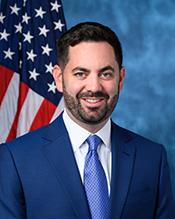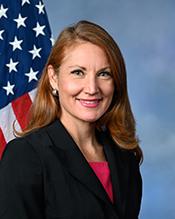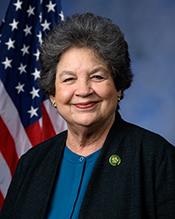H.R. 3661: Extreme Weather and Heat Response Modernization Act
The Extreme Weather and Heat Response Modernization Act is a proposed bill aimed at improving how the Federal Emergency Management Agency (FEMA) handles incidents related to extreme weather, particularly heat events. The bill outlines several key actions and goals that FEMA must undertake to enhance preparedness and response to these events.
Establishment of an Advisory Panel
Within six months of the bill's enactment, FEMA is required to form an advisory panel made up of emergency management personnel. The panel's role is to review and provide recommendations regarding the process used by FEMA to determine the timing and duration of incident periods for emergencies and disasters. This panel should include representatives from:
- National emergency management organizations
- County officials
- The National Weather Service
- Emergency management personnel from various jurisdictions
Reviewing Incident Periods
The advisory panel will examine the effectiveness of incident periods for different types of disasters, including:
- Slow onset disasters
- Correlated non-contiguous disasters
- Compound disasters
- Cascading disasters
FEMA will also be tasked with submitting an interim report to Congress within one year and a final report within two years, summarizing the findings of the advisory panel along with any legislative recommendations for enhancing incident period management.
Mitigation and Preparedness Projects
The bill allows FEMA to consider innovative projects for preparing for and mitigating the effects of extreme heat and cold. This includes:
- Stockpiling and installing equipment for households and public health systems
- Establishing community cooling centers where people can maintain a healthy temperature during extreme heat events
- Creating resilience centers designed to help communities become more resilient during emergencies
FEMA is directed to provide guidance for these efforts to ensure that funding is appropriately used to complement existing assistance programs.
Guidance on Extreme Temperature Events
Within one year of enactment, FEMA must issue guidance focused on extreme temperature events, including heatwaves and freezes. This guidance will clarify eligibility for hazard mitigation projects and include criteria for successful projects aimed at addressing extreme heat impacts.
Study on Extreme Heat and Cold
FEMA is required to conduct a study within one year to assess the impact of extreme heat and cold and develop guidance for better preparedness and response. The study must consider:
- The effects on disadvantaged communities and infrastructure
- Short- and long-term health outcomes
- Emergency alerts and public safety communication
- Best practices for community education
A report detailing the study's findings and recommendations must be submitted to Congress within one year of the study's completion.
Rulemaking Requirements
After receiving the final report from the advisory panel, FEMA must begin a rulemaking process to implement any recommended changes within a specified timeframe.
Funding and Support Framework
Funding provided under this bill is designed to supplement existing resources rather than replace them. This aims at ensuring a robust framework for disaster readiness and management during extreme weather events.
Relevant Companies
- CMI (Cummins Inc.) - This company could be impacted as its equipment and technology are often involved in emergency management and disaster recovery operations, particularly regarding power generation and resilience solutions.
- ETR (Entergy Corporation) - As a utility provider, Entergy may need to adapt its emergency response strategies and infrastructure improvements in relation to extreme weather events.
This is an AI-generated summary of the bill text. There may be mistakes.
Sponsors
6 bill sponsors
Actions
2 actions
| Date | Action |
|---|---|
| May. 29, 2025 | Introduced in House |
| May. 29, 2025 | Referred to the House Committee on Transportation and Infrastructure. |
Corporate Lobbying
0 companies lobbying
None found.
* Note that there can be significant delays in lobbying disclosures, and our data may be incomplete.













